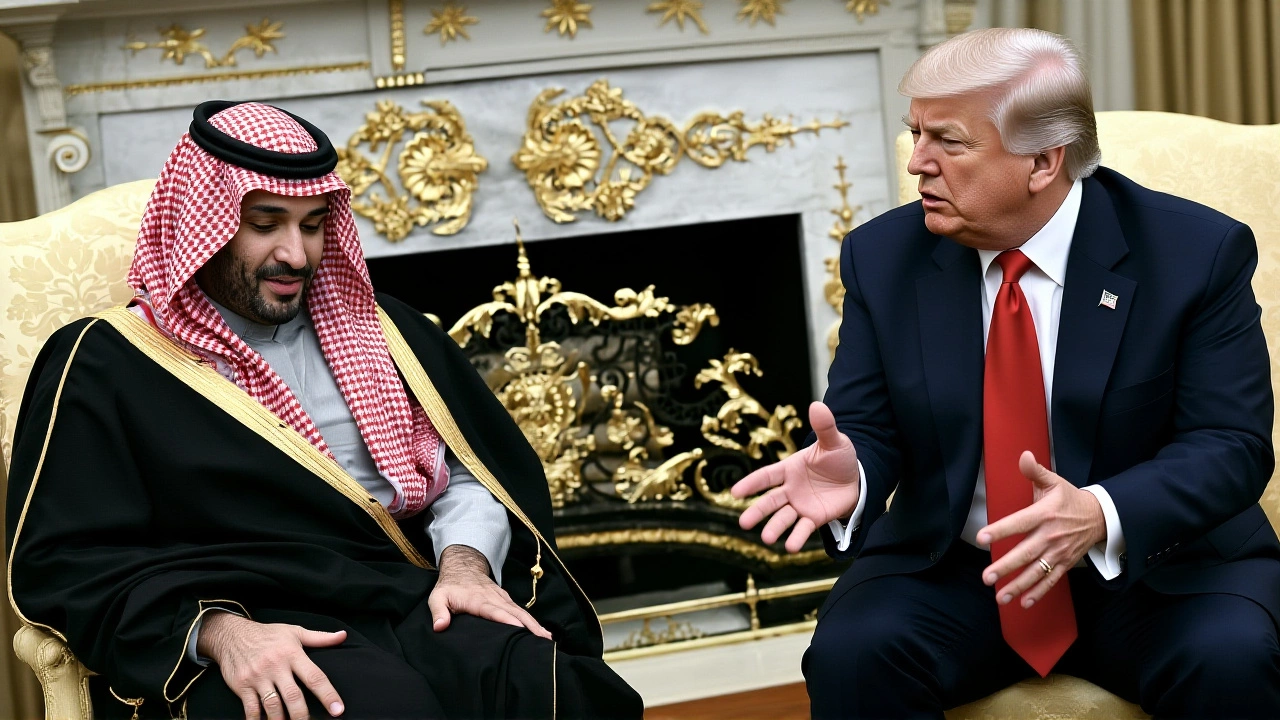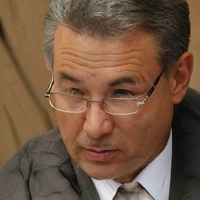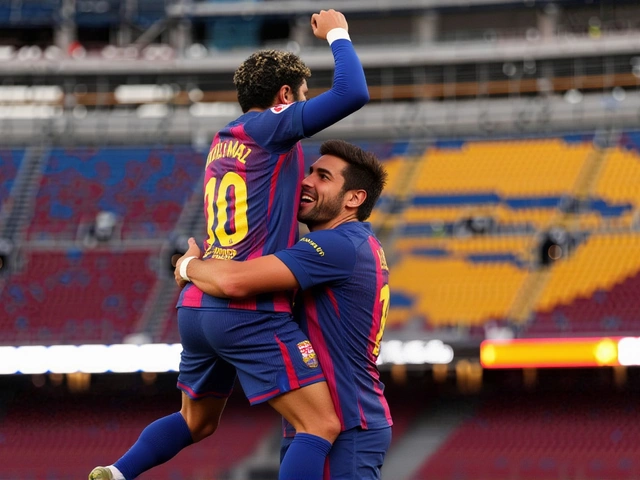Former U.S. President Donald J. Trump stunned attendees at a closed-door fundraiser on November 18, 2025, by declaring that Mohammed bin Salman Al Saud had "zero knowledge" of the 2018 murder of journalist Jamal Khashoggi. The remark, made at Mar-a-Lago Club in Palm Beach, Florida, directly flips the official U.S. government stance — a position firmly held since a declassified 2021 intelligence report concluded MBS approved the operation that led to Khashoggi’s death. The contradiction isn’t just political noise. It’s a seismic shift in how America’s most powerful former leader frames one of the most chilling human rights abuses of the 21st century — and it could ripple through delicate U.S.-Saudi negotiations set to begin in Riyadh on November 25, 2025.
Contradicting the Official Record
The Office of the Director of National Intelligence (ODNI) released its findings on February 26, 2021, with chilling clarity: "Crown Prince Muhammad bin Salman approved an operation in Istanbul to capture or kill Jamal Khashoggi." The report didn’t just point fingers — it laid out a timeline. On September 28, 2018, MBS reportedly applauded the idea of luring Khashoggi back to Saudi Arabia. By October 2, 2018, a 15-member Saudi team had strangled him inside the Consulate General of the Kingdom of Saudi Arabia in Istanbul. Turkish intelligence, later corroborated by the CIA, showed the body was dismembered with a bone saw. The ODNI report cited "multiple sources," including intercepted communications and forensic evidence. Trump’s version? "I believe him 100 percent," he told donors, according to notes obtained by The Wall Street Journal. He dismissed the 2021 report as "nonsense," comparing it to the flawed intelligence used to justify the Iraq War. "The same people who gave us bad intel on Iraq wrote this," he allegedly said. That’s not just revisionism — it’s a wholesale rejection of the U.S. intelligence community’s most authoritative assessment on the matter.Who’s Still Standing by the 2021 Report?
The Biden administration never wavered. Then-DNI Avril Haines stood firm in 2021, calling the findings "the sustained rigor and objectivity of our intelligence professionals." Now, in 2025, the White House National Security Council reaffirmed that stance. Spokesperson John Kirby told reporters on November 19, 2025: "The U.S. intelligence community’s assessment on this matter remains unaltered since February 2021." Even former Trump officials didn’t back him. Thomas Blanton, director of the National Security Archive at George Washington University, told the Associated Press: "Trump’s dismissal ignores the declassified evidence showing MBS’s direct oversight of the operation. The 2021 report remains the official U.S. government position." And Saudi Arabia? Adel bin Ahmed Al-Jubeir, Saudi Foreign Minister, welcomed Trump’s comments during a November 20 press conference in Riyadh. "We appreciate former President Trump’s recognition of his integrity," he said. It’s a rare moment of alignment between Trump and the Saudi monarchy — but it’s built on a foundation that most Western governments and human rights groups consider false.The Khashoggi Ban and Diplomatic Fallout
The 2018 killing didn’t just stain Saudi Arabia’s image — it triggered concrete U.S. policy. On December 20, 2021, Congress passed the Khashoggi Ban under Section 223(a) of the Global Magnitsky Act. The State Department implemented it on January 15, 2022, denying visas to 76 Saudi individuals linked to the killing — including operatives from the Royal Court and intelligence services. The ban remains active. No president has lifted it. Now, with Steve Witkoff, Trump’s newly appointed U.S. Special Envoy for the Middle East, preparing for nuclear talks in Riyadh on November 25, 2025, the timing couldn’t be worse. The U.S. is seeking a civil nuclear cooperation agreement — a deal that could reshape energy and geopolitics in the Gulf. But how can American negotiators sit across the table from a regime they’ve formally sanctioned for murder, while their own former president publicly clears its leader? The optics are toxic. European allies are already quietly concerned. Human rights organizations like Human Rights Watch and Amnesty International are preparing statements. And for the families of Khashoggi — especially his fiancée, Hatice Cengiz, who waited outside the consulate that day — Trump’s words feel like a betrayal.
Why This Matters Beyond Politics
This isn’t just about Trump’s opinion. It’s about the erosion of institutional credibility. When a former president publicly rejects a bipartisan intelligence assessment — one supported by satellite imagery, audio recordings, and forensic reports — he doesn’t just undermine the ODNI. He weakens the entire architecture of U.S. foreign policy. Other autocrats are watching. If MBS can be absolved by a former U.S. president, what message does that send to leaders in Moscow, Pyongyang, or Ankara? The 2021 report wasn’t a political document. It was a forensic one. It named names. It cited dates. It mapped communications. It didn’t just say MBS "likely" knew — it said he "approved" the operation. Trump’s dismissal isn’t just wrong — it’s dangerous. And here’s the twist: Trump’s comments came during a $1 million-per-couple fundraiser for the Save America PAC. The attendees? Billionaires like John Paulson and Farris Wilks. This wasn’t a policy briefing. It was a transaction. And in that room, truth became a bargaining chip.Frequently Asked Questions
What evidence did the 2021 U.S. intelligence report use to conclude MBS approved Khashoggi’s killing?
The ODNI report cited intercepted communications between Saudi officials, including a September 28, 2018, meeting where MBS reportedly applauded luring Khashoggi back to Saudi Arabia. It also referenced forensic data from Istanbul, audio recordings of the killing inside the consulate, and the movements of the 15-member hit squad — all of which traced back to MBS’s inner circle. The report emphasized his "absolute control" over Saudi security agencies.
Has the U.S. government ever changed its official stance on MBS’s involvement since 2021?
No. Both the Biden administration and now, under Trump’s renewed influence, the State Department and National Security Council have reaffirmed the 2021 assessment. Even though Trump is no longer president, his public rejection of the report doesn’t alter the official U.S. position. The Khashoggi Ban remains in place, and no executive order has rescinded the findings.
How has Saudi Arabia responded to U.S. criticism over Khashoggi’s killing?
Saudi Arabia initially denied involvement but later admitted the killing occurred, calling it a "rogue operation." Eight individuals were convicted in a secret 2019 trial, but all convictions were overturned in 2022 after royal pardons issued by King Salman. The government now insists MBS had no prior knowledge and has cooperated with international inquiries — a position Trump’s comments now bolster.
What are the potential consequences for U.S.-Saudi relations following Trump’s remarks?
Trump’s comments may ease diplomatic friction ahead of the November 25 nuclear talks, but they risk alienating U.S. allies and Congress. Lawmakers who pushed for the Khashoggi Ban may retaliate by blocking arms sales or nuclear cooperation. European partners, already skeptical of Saudi human rights records, may push back harder. The long-term damage to America’s moral authority on human rights could outweigh short-term gains in energy deals.
Who were the key individuals involved in Khashoggi’s killing, and what happened to them?
The operation was led by Maher Abdulaziz Mutreb, a Saudi intelligence official, and overseen by Saud al-Qahtani, a royal court advisor. Both were named in the 2021 ODNI report. Saudi courts convicted eight individuals in 2019, but all were pardoned in 2022. No one has been held accountable at the leadership level. The U.S. Khashoggi Ban targets 76 individuals, including several who were never prosecuted in Saudi Arabia.
Why does Trump’s claim matter if he’s no longer president?
Because Trump remains the dominant figure in the Republican Party and a leading contender for the 2028 presidential election. His public rejection of intelligence findings sets a new standard for how future administrations might treat human rights abuses — prioritizing alliances over accountability. It signals to foreign leaders that U.S. moral positions are negotiable, depending on who’s in power.











